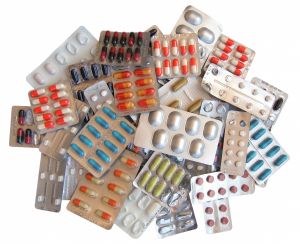Today is European Antibiotic Awareness Day (EAAD), a day to raise awareness about the threat to public health of antibiotic resistance and antibiotic overuse. This is an initiative founded by the European Centre for Disease Prevention and Control (ECDC) who aim to strengthen Europe’s defences against infectious diseases. Antibiotic resistance is a global issue, with the ECDC reporting that resistance rates have more than doubled in the last five years. The issue is also causing a huge financial burden on healthcare systems worldwide, and there is now an urgent need for new effective antibiotics.
The ECDC produce a comprehensive weekly report, documenting disease threats throughout Europe. This is an essential tool for epidemiologists and health professionals to assess the changes in the epidemiology of communicable diseases, especially those which are the focus of eradication efforts.
To mark the day, Antimicrobial Resistance and Infection Control (ARIC) have published a timely commentary with an accompanying editorial discussing the global threat of antimicrobial resistance, and the views arising from the World Healthcare-associated Infections Forum 2013.
A global problem
EAAD highlights the importance of taking antibiotics responsibly by following doctors instructions, and their website also gives some essential information for primary care prescribers. Over-prescribing antibiotics is a major contributor to the antibiotic resistance problem the world faces today, and is a common occurrence in primary care throughout Europe and the rest of the world.

Interesting new research by Schweizer and colleagues published in ARIC links antimicrobial prescription to national rather than local MRSA infection prevalence, which raises concern over possible over-prescribing of antibiotics in certain regions. This research was conducted in the USA, but the conclusions are very relevant to clinicians in Europe and other parts of the world, with the hope that this may introduce a cautious approach to antimicrobial prescription.
Also in ARIC, Deirdre Collins and colleagues review Clostridium difficile infection prevalence in Asia, and the concern of antibiotic resistance in these areas due to unregulated antibiotic prescribing. Another recent review published in Annals of Clinical Microbiology and Antimicrobials (ACMA) discusses the concerning spread of antimicrobial resistance in regions of Africa and the need for a sustainable surveillance system here. Both of these reviews highlight the need for increased awareness of antibiotic resistance and improved reporting of infection out breaks in these developing countries.
A gut feeling
A commentary by Jean Carlet published in ARIC suggests that the gut is the epicentre of antibiotic resistance. The destabilisation of the gut microbiome caused by antibiotics can facilitate horizontal gene transfer between gut pathogens and intestinal flora leading to antibiotic resistance. This disruption also leads to the selection of potentially harmful pathogens originally present in only very small amounts, e.g Clostridium difficile. Once the gut is colonised, it is very difficult to eradicate the gram negative highly resistant bacteria due to the lack of effective antibiotics now available.
What’s in the pipeline?
Due to the vast increase in multidrug resistant pathogens in the community, we are now desperately in need of new effective antibiotics. In a timely review published recently in ACMA, Bassetti et al. explain that the severity of the problem of antimicrobial resistance is due to the difficulty of finding effective new drugs. Many new antibiotics targeting highly resistant gram negative bacilli, which are needed as a priority, have not even reached phase 2 or 3 trials (only 7 since 2010). Despite the many obstacles to finding suitable new drugs that provide safety in use according to new regulations, good efficacy patterns and low resistance profile, this review highlights that there are a number of promising antibiotics in development at present. There is hope that these drugs will contribute towards the 10 x ‘20 initiative, supported by the Infectious Diseases Society of America (IDSA) to develop ten new antibiotics by 2020.
You can visit the European Antibiotic Awareness Day website to find out more about the event, and how you can become involved.


Comments